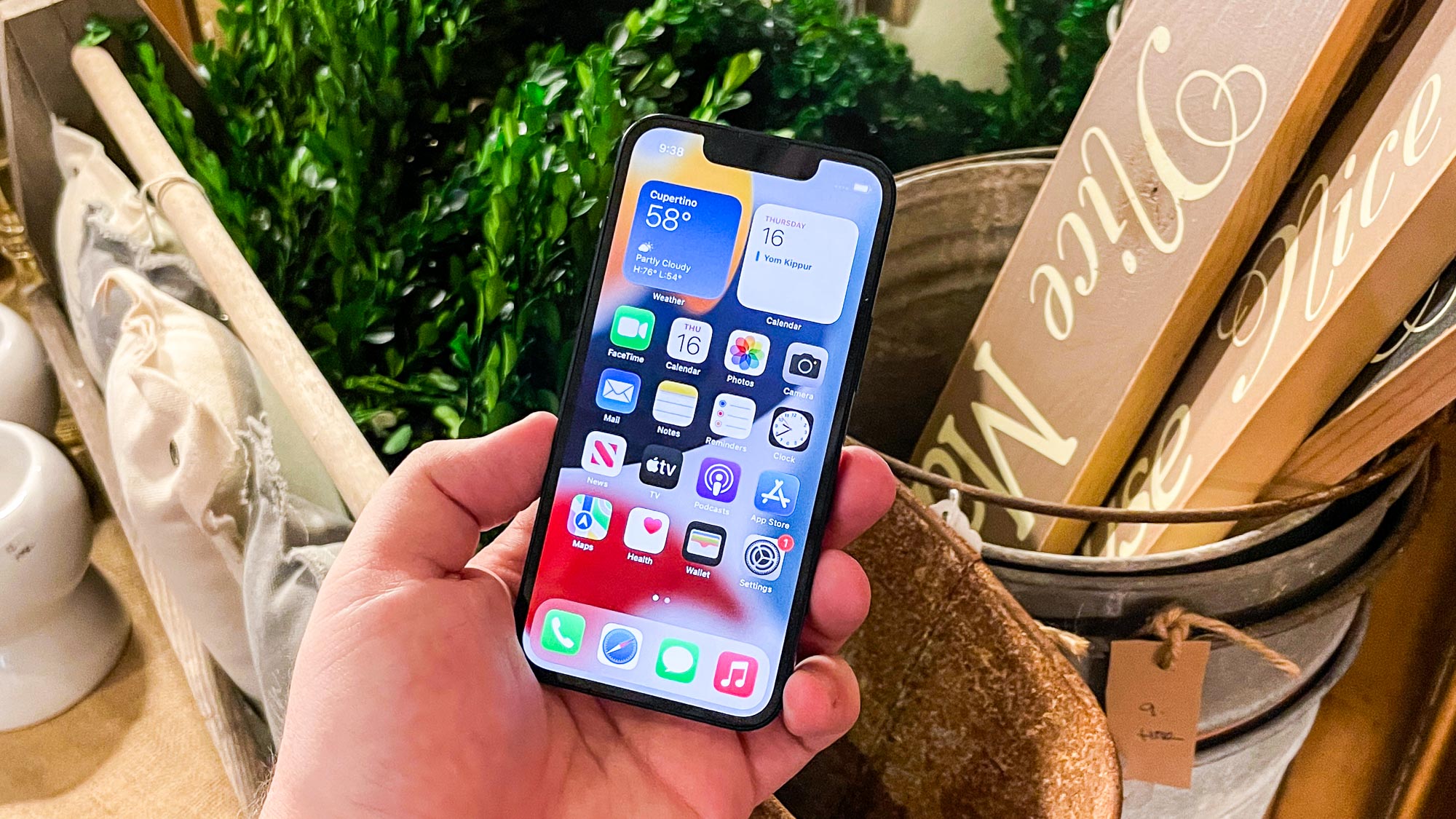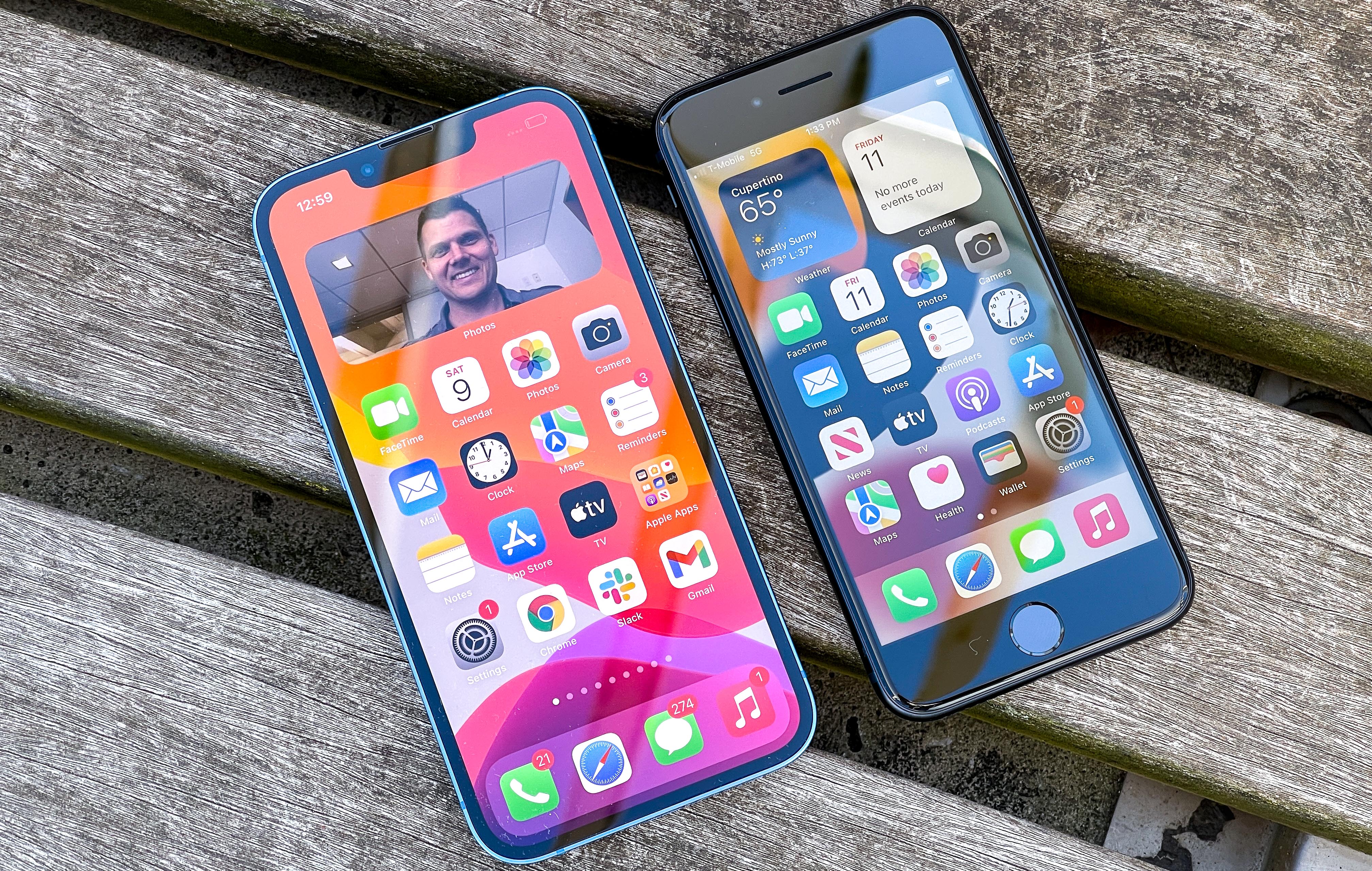iPhone 14 could mean end of the mini — but Apple needs a better small phone
The iPhone 14 likely won't feature a mini model, but Apple shouldn't give up on compact devices

When Apple unveils the iPhone 14 lineup in a week-and-a-half — the company set a September 7 date for its next product launch — we're expecting to welcome four new models to the iPhone lineup. But it also mark the end of the road for one particular type of iPhone.
The September Apple event is all but certain to mark the end of the mini, first introduced as part of the iPhone 12 lineup two years ago. And if reports of Apple phone sales are anything to go by — remember, the company doesn't break down its sales by device — not many people are going to be shedding too many tears over the end of the mini.
People like bigger phones these days, since we're spending more time on our mobile device doing the sort of things we used to prefer handling on a laptop or desktop display. Having added screen space in the palm of your hand lets you better tackle those tasks.
And if rumors of Apple's iPhone 14 plans are accurate, the company seems to have gotten that message. In addition to the standard 6.1-inch iPhone 14 and the usual pair of iPhone 14 Pro models, the fourth new handset from Apple this fall is likely to be the iPhone 14 Max, a more affordable version of the 6.7-inch phone
What's a small phone fan to do?
For the shrinking number of small-screen phone fans, there aren't a lot of iPhone 14 mini alternatives out there that don't involve settling for a discounted iPhone 13 mini or switching to a compact Android device. And I think that's a shame — bigger phones may be in vogue these days, but I still think there's a market out there for a compact iPhone at the right price.
As good as the iPhone 12 mini and iPhone 13 mini were — and Tom's Guide rated those devices very highly among the best iPhones — I think Apple missed the mark in one area. At $699, the current mini may have been priced too close to the $799 iPhone 13 to convince people they were getting much of a bargain.
Certainly, the primary appeal of small phones is that the device is easy to use with one hand and stash in a pocket — certainly easier than your typical phablet. But I think people also expect smaller phones to cost less then their big-screen siblings. Whether that's a reasonable expectation or not is open to debate, but there's definitely a psychological component to paying significantly less for less phone.

The iPhone SE was supposed to fill that role, and the original model released in 2016 was up to the text. That phone was both compact and cheap, and it helped Apple capture a bargain-hunting segment of the phone-buying market traditionally put off by the company's reputation for premium devices.
But I don't sense that same kind of enthusiasm or the current iPhone SE 2022 model, and it's not hard to figure out why. Unlike the original SE which reflected a somewhat contemporary iPhone design, the current SE sports a look that Apple last used on its flagship phones with 2017's iPhone 8, big bezels and all. It just looks out of place in this day and age, when screens extend practically to the edge of your handset.
What Apple does next
If Apple wanted to take another stab at the small-phone market — a big "if" given the likely fate of the mini — I think it would enjoy more success were it to adapt the iPhone mini design into a device available at an iPhone SE price. That would mean scaling back in other ways — dropping the ultrawide angle lens and maybe swapping out the OLED panel for an LCD one — but those are compromises small phone shoppers would be willing to make if it meant an affordable, compact device.
Would Apple make such a move? Probably not. While most Apple phone rumors these days are laser-locked on the upcoming iPhone 14 release, there were some stirrings earlier this year about an iPhone SE Plus in the works at Apple. This phone wasn't expected until 2023, and given the lack of current buzz about it, that's likely a safe bet.
But as the "Plus" would imply, you'd be getting a larger phone than the 4.7-inch iPhone SE 2022. Some reports suggest the Plus model would feature a 5.5-inch screen, which would make sense if Apple retain the iPhone 8 design. (The iPhone 8 Plus offered a 5.5-inch display.) Still, others have suggested Apple might turn to a 6.1-inch panel, given the public's seeming disdain for smaller screens.
I'm not sure I buy the 6.1-inch report, given that Apple would need to differentiate such a device from the standard iPhone 14. Then again, I'm also not so sure that the iPhone SE Plus is that viable a rumor to begin with.
What I do know is that there's an audience out there for compact phones that come in at a reasonable price. It's up to Apple to determine if that market is worth pursuing.
Sign up to get the BEST of Tom's Guide direct to your inbox.
Get instant access to breaking news, the hottest reviews, great deals and helpful tips.
Philip Michaels is a Managing Editor at Tom's Guide. He's been covering personal technology since 1999 and was in the building when Steve Jobs showed off the iPhone for the first time. He's been evaluating smartphones since that first iPhone debuted in 2007, and he's been following phone carriers and smartphone plans since 2015. He has strong opinions about Apple, the Oakland Athletics, old movies and proper butchery techniques. Follow him at @PhilipMichaels.

